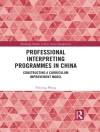This book aims to enable parents in trilingual families to consider possible language strategies on the basis of analysing their individual circumstances. It includes a tool for diagnostic self-analysis that will help each reader to identify their situation and learn how parents in similar situations have approached the task of supporting their children’s use of languages. Based on a unique survey of parents in trilingual families in two European countries, the book highlights the challenges that trilingual families face when living in mainly monolingual societies. It takes into account the recent emergence of a ‘New Trilingualism’ among educated parents who find themselves in trilingual families because of global trends in migration and the recent expansion of the EU.
Jadual kandungan
1. Trilingualism and Multilingualism: An Overview
2. Comparing Bilingual and Trilingual Families
3. Monolingual Parents Living Abroad (Group 1)
4. One or Both Parents are Bilingual (Group 2)
5. One or Both Parents are Trilingual (Group 3)
6. Trilingual Proficiency in a Trilingual or Multilingual Society
7. Concluding Words
Appendices: Resources for Trilingual Families with Children
List of Illustrations and Tables
List of References and Further Reading by Chapter
Mengenai Pengarang
Tony Cline is Co-Director of the CPD Doctorate in Educational Psychology, University College London. His research interests include the education of bilingual children, selective mutism, literacy learning difficulties of bilingual pupils, the education of minority ethnic children in mainly white schools and child language brokering at school.












